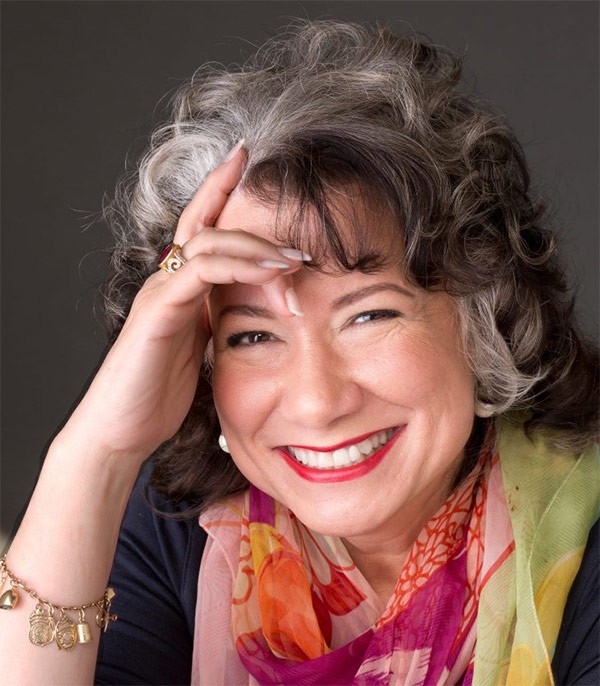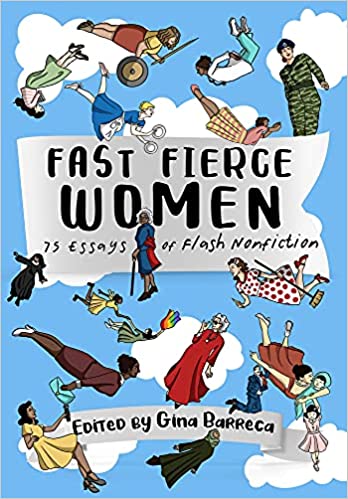Blogs

Fierce Women
By Gina Barreca
(This is an excerpt from the introduction of Fast Fierce Women: 75 Essays of Flash Nonfiction (Woodhall Press, 2022), edited by Gina Barreca. The work of at least 10 writers affiliated with the Erma Bombeck Writers’ Workshop are included in the new book. Reprinted by permission.)
Fierce can be getting out of bed. It can be taking a shower. It can be switching a job, seeing a shrink, going to war, or getting out of a relationship that could kill you. It can be crossing your arms across your chest or opening them in an embrace.
A fierce woman is fierce in belief, in joy, in compassion, in commitment, in intelligence, in wit, and in community. She’s capable not only of finding her own way, but of creating a path for others; she doesn’t just break down doors, she tears down walls.
A fierce woman makes her deadlines, makes the call she dreads, makes good on her promises, and makes trouble when necessary — but only when necessary. She is not a coward: she accepts responsibility but won’t carry somebody else’s guilt — she’s no sin-eater, no doormat, and no blotting pad silently soaking up whatever drops on her from above or seeps into her from the sides. She doesn’t cry wolf until the wolf is at the door, or until she needs to call the rest of the pack to join her at the door, for significant and meaningful lupine backup.
A few of us were born fierce, but most of us had to learn it.
I was in high school when I started to find my own courage and overcome my sense of trepidation about life, but that sense of confidence and fearlessness came at a cost.
I grew up fast, and not on purpose. My mother, an immigrant and a shy, sad woman, was diagnosed with cancer when I was fifteen; I looked after her during her unendurable illness. She died during my junior year of high school. My father was a devoted parent, but he worked long days and couldn’t look after the day-to-day life of a teenaged girl.
There was nothing to do but look after myself. I learned to stop waiting for someone else to provide comfort, or solace, or apologies. I stopped depending on anyone — parent, family members, teachers, boyfriends, or friends — to define who I was or who I might become.
As I accepted the need to think about my future and map my own destiny, I also started thinking about ways that women — not only me but all women — had for too long permitted others to define our lives. …
The real discovery, as many of the pieces here illuminate, is the moment when we realize that slipping off conventional feminine propriety is like stripping out of a too-tight dress. And kicking off the goody-two-shoes pretense is like sending a pair of high heels flying across the room after a long day. The big changes in women's lives do not necessarily involve menopause or the end of child rearing or any other Margaret Mead anthropological slide show; the biggest thing that happens to any woman is when she stops being the ingénue — when she realizes that she can speak up, speak out, and make herself heard. …
Fierce women will tell you the truth and we won't sugarcoat it; we'll laugh only when your stories are funny; we'll argue until the sun goes down or comes up again without batting an eye — let alone fluttering an eyelash in a flirtatious attempt to get you to settle down.
We don't want to settle down anymore. We've been settled, like some western township, and now we want to kick up the dust and tear down the fences. Not only will we not settle down, we won't settle for less than what we've always wanted: a good time and a fair fight.
The 75 essays you’re about to read offer windows into the lives of formidable, funny, and ferociously bold women.
Here’s to a bright and fierce future.
— Gina Barreca
Hailed as “smart and funny” by People, Gina Barreca was also deemed a “feminist humor maven” by Ms., and her pieces for Psychology Today have received over 8 million views. Gina, who is a Board of Trustees Distinguished Professor at UConn as well as winner of its highest award for excellence in teaching, has written 10 books, including Babes in Boyland: A Personal History of Coeducation in the Ivy League and the bestselling They Used to Call Me Snow White But I Drifted. You can find her in the Library of Congress or in the makeup aisle at Walgreens. Gina, a former keynoter, will be part of the faculty at the Oct. 20-22 Erma Bombeck Writers’ Workshop, where she’ll participate in a book signing with contributors. To register, click here.


